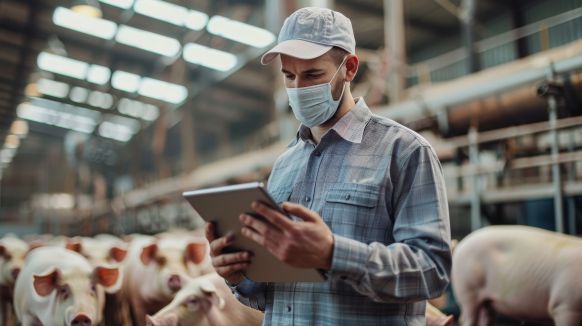563

The Digitalization of Slaughterhouses – The New Standard for Competitiveness in the EU Meat Industry
The digitalization of slaughterhouses is becoming an essential condition for the competitiveness of the European meat industry. Through the integration of digital technologies — from smart labeling to blockchain-based tracking systems — operators can ensure transparency, food safety, and economic efficiency. Romania is currently undergoing a modernization process, and its ability to adapt quickly to new European requirements will determine the difference between survival and performance.
According to the European Commission, the new package on the digitalization of agri-food chains requires the mandatory implementation, by 2030, of electronic traceability systems for all processing units in member states. This involves tracking every stage — from animal reception, slaughtering, and storage, to delivery — through unique digital labels.
The European Food Safety Authority (EFSA) emphasizes that full digitalization reduces the risk of contamination and product origin fraud by up to 40%. Moreover, real-time data collection enables faster intervention in food safety incidents and improves veterinary control.
In Romania, only 25% of slaughterhouses currently use integrated digital systems, according to Eurostat. The most advanced are large units with mixed capital, which have already introduced digital traceability and automated monitoring of temperature and humidity. The Ministry of Agriculture and Rural Development (MADR), through the CAP Strategic Plan 2023–2027, provides non-reimbursable funding for IT equipment, ERP software, and monitoring sensors — including for small and medium-sized enterprises.
A recent FAO report shows that every euro invested in processing digitalization generates operational savings of up to 2.4 euros over the next five years, due to reduced losses and faster processing speeds. At the same time, digitalization increases consumer trust and facilitates exports to markets with strict regulatory standards.
Slaughterhouses that adopt these solutions early will benefit not only from compliance but also from a competitive edge. In a global market where food safety has become a commercial argument, digitalization is no longer optional — it is the foundation of a modern and transparent industry.
(Photo: Freepik)




